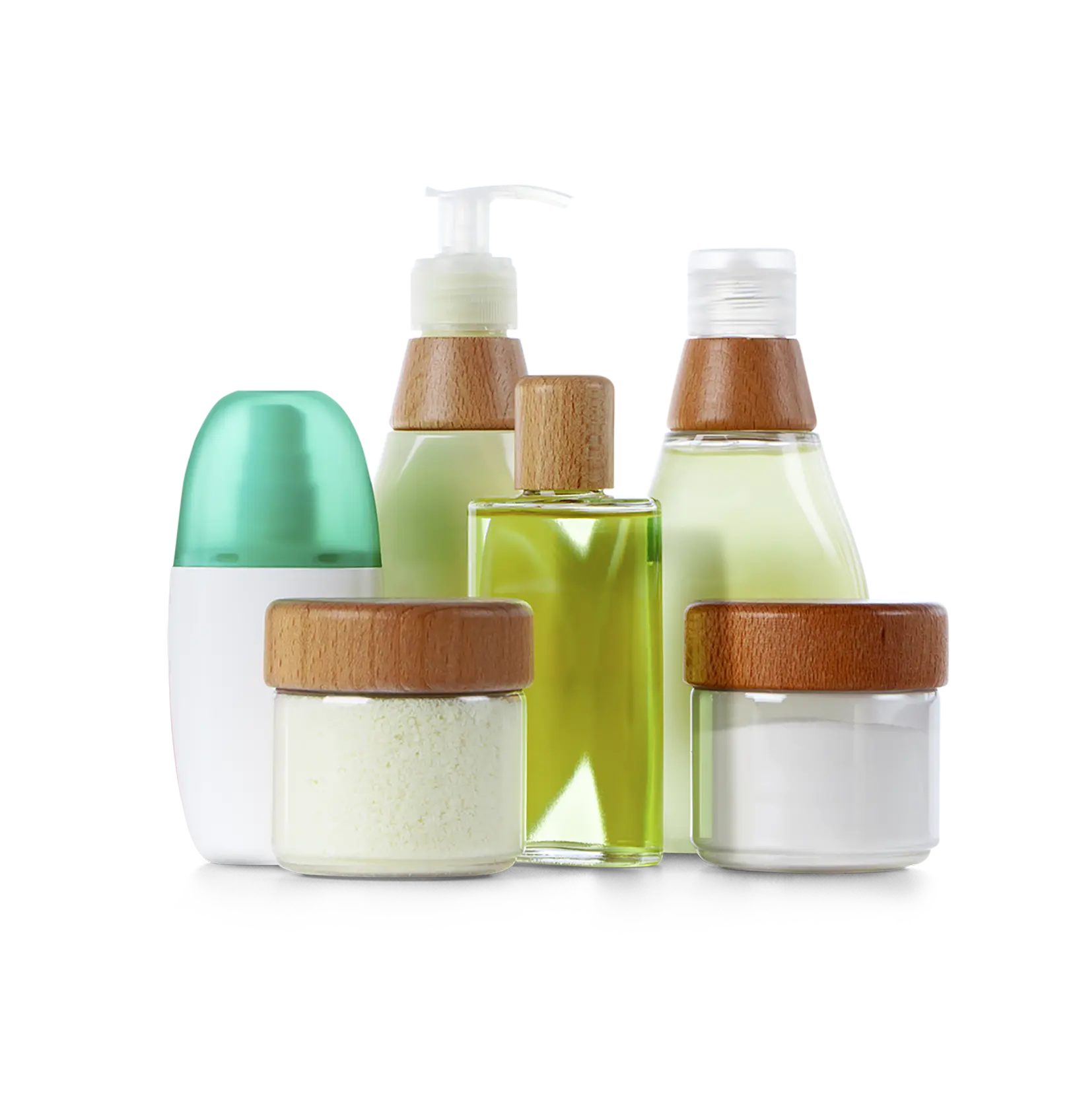Featured in this post
What the New California Food Safety Laws and Cosmetics Regulations Mean for Process Manufacturers
What the New California Food Safety Laws and Cosmetics Regulations Mean for Process Manufacturers
Nov 8, 2023
 John McCurdy | Senior Content Writer, Marketing
John McCurdy | Senior Content Writer, Marketing
The independent spirit of the founders of the short-lived California Republic endures in its more liberal voter base today, as the Golden State is well-known for more progressive legislation and its role as a trendsetter in policy. October 2023 saw two significant developments along those lines, with the passage of both the California Food Safety Act and a significant amendment to 2020’s Toxic-Free Cosmetic Act.
Both of these new laws prohibit the “manufacturing, selling, delivering, holding or offering for sale in commerce” a number of potentially harmful ingredients, including certain food additives and “forever chemicals.” They’ll also directly impact businesses that use any of these substances in products that they currently market in California.
In all likelihood, most food, beverage, cosmetics and personal care organizations will seek to eliminate the prohibited substances from their products and facilities, as maintaining two different variants—one including a prohibited chemical, the other not—is complicated and introduces risk. The option of not selling those items in California also exists, but considering the state would have the fifth-largest economy in the world were it still its own country, that’s not likely to be the preferred strategy.
Of course, changing the recipes and formulas of multiple items in a product portfolio presents a challenge, as it requires a high degree of coordination, effort and precision. If your company is among those that will need to make the appropriate modifications to your goods to comply with the new prohibitions, you’ll need the right solution to facilitate the process.
To dive deeper into the legislation and what it entails, as well as how process manufacturing-specific product lifecycle management (PLM) software can support your business’s regulatory compliance strategy, we’ll cover the subjects in depth below.
The Details on the California Food Safety Act
The California Food Safety Act prohibits the use of four popular food additives:
Red dye no. 3—Derived from petroleum and used as a food coloring in a number of products, but has been linked to risk of thyroid cancer.
Potassium bromate—Used to improve dough and act as a maturing agent, but is also a potential carcinogen.
Brominated vegetable oil—Added to some beverages to keep citrus flavoring from separating, but has been linked to neurological problems.
Propylparabens—Used for antimicrobial food preservation, but can mimic estrogen and thereby disrupt the endocrine system.
Notably, the first three of these additives are banned altogether in European Union (EU) member states, and some propylparabens are banned, with the rest strictly regulated. The National Confectioners Association has already issued a statement criticizing the law, claiming that it will “create confusion around food safety” and a “slippery slope” effect while not “relying on the scientific rigor of the FDA.”
That said, most industry experts feel that the law is a significant step forward and will set the tone for other states’ policies in the future.
“California looks to indeed be kickstarting a soon-to-be national trend by taking a scientific approach to analyzing additives and chemicals that are currently use in our food and beverages, and removing them from the market if deemed unsafe for consumption,” said Drew Pogones, PdM, Regulatory & Compliance at Aptean.
The original bill was authored by Assemblymember Jesse Gabriel and co-sponsored by the Environmental Working Group and Consumer Reports. Full enforcement will not be in effect until January 1, 2027, so affected businesses will have sufficient time to understand the implications of the law and formulate a strategy for compliance.
Interestingly, the initial version included a prohibition of titanium dioxide—which is sometimes used as a pigment in food products—but that was absent in the final act. New York Senator Brian Kavanagh has introduced a similar bill in that state’s legislature that would prohibit the use of the four additives targeted by the California Food Safety Act as well as titanium dioxide.
The Details on the Amendment to the Toxic-Free Cosmetic Act
The amendment to the Toxic-Free Cosmetic Act that began as Assembly Bill 496 supplements the original law’s list of 24 prohibited chemicals with an additional 26. These include various phthalates, parabens, boron substances, pigments and dyes, as well as 12 per- and polyfluoroalkyl substances (PFAs) and their salts. All chemicals targeted by the amendment are already banned in the EU.
Critics of the amendment point to the difficulty in demonstrating that an ingredient was not “intentionally added,” especially in the case of forever chemicals like PFAs. The exception for “unavoidable trace” amounts is also ambiguous, drawing comparisons to California’s Proposition 65 and the exemption it created for “naturally occurring” chemicals.
The additional chemicals added to the list of prohibited substances are most commonly found in fragrances, hair dyes and nail polishes. The bill was originally authored by Assemblymember Laura Friedman and sponsored by the Environmental Working Group. Lastly, enforcement of the Toxic-Free Cosmetic Act is set for January 1, 2025, and the amendment’s prohibitions will take effect January 1, 2027.
“The new MoCRA (Modernization of Cosmetics Regulation Act) requirements were already going to force cosmetic businesses marketing products in the U.S. to do extensive research on each of their ingredients, and the addition of this amendment indicates that we could see the prohibited list grow over time,” Pogones said.
PLM Features for Component, Formulation and Compliance Management
Product reformulation, even when it only entails the replacement or removal of a single ingredient, is an effort that demands proper organization, care and attention to detail. Luckily, PLM software can empower your R&D, manufacturing and marketing teams to collectively rise to the challenge with a diverse range of robust features that facilitate different steps in the process.
A supplier portal, which makes working with vendors to find replacement components easier with a fully digital interface for communication and transactions.
Index and search functions, which allow you to quickly identify components used in your production processes and the products with which they’re associated.
Substance screening features, which can flag prohibited ingredients in recipes and formulas so that they can be modified appropriately.
Advanced formulation tools, which enable you to fine-tune components and quantities used in your products.
Impact and change management functions, which help you understand the full implications of replacing and removing components, and then mass replace specific components when appropriate.
Program management features, which can facilitate accounting for component changes across a line of products, like a set of different flavors or shades.
Automatic ingredient statement generation, which simplifies the labeling processes and reduces the risk of human error in transcription.
Non-compliance tracking tools, which assist you in tracking production errors—including those that might result in the accidental inclusion of a prohibited chemical—and rectify the underlying issues that cause them.
Beyond all this, a PLM platform generally serves as a “single source of truth” for your whole company, as the centralized database allows broad accessibility and high visibility of critical information. The right industry-specific solution can accelerate your time-to-market with new offerings and streamline new product development (NPD) to drive innovation.
Succeed in Regulatory Compliance With Solutions From Aptean
While change is a constant in the dynamic food, beverage, cosmetics and personal care markets, new regulations can have implications and require adjustment from a multitude of businesses—a shake-up that’s every bit as significant as a sudden change in consumer attitudes and preferences. In situations like these, you don’t want to be caught flat-footed, and you need to have the foundation and support to adapt and deploy a winning strategy going forward.
That’s where purpose-built process manufacturing software comes in. By equipping your teams with the tools they need for highly specialized tasks, as well as functionalities that serve a wide variety of departments and operational areas, industry-specific solutions can help you future-proof your business and give you the assurance that no matter what comes your way, you’ll be prepared.
We’ve covered the modern PLM and many of its features above, but enterprise resource planning (ERP), overall equipment effectiveness (OEE) and enterprise asset management (EAM) solutions each offer critical functionalities to be leveraged and benefits to be realized. Aptean is proud to offer these and more, all from one trusted provider and long-term partner.
Also, the majority of our software is cloud-ready on the Software as a Service (SaaS) model, so you can opt for a lightweight and flexible approach that provides enhanced cybersecurity, stronger data protection, broader accessibility and greater scalability. These setups also require minimal on-premise hardware, keeping your costs down and relieving your IT team of any additional burden.
Whether your business is just beginning its digital transformation journey or you’re ready to learn more about our PLM solution for food, beverage, cosmetics and personal care companies—Aptean PLM Lascom Edition—we hope you’ll keep us at the top of your list. And be sure to read more about PLM software selection in this step-by-step guide.
Ready to start transforming your cosmetics regulatory compliance?
If you’re ready to ensure your cosmetics business is compliant with MoCRA, we’d love to help.



